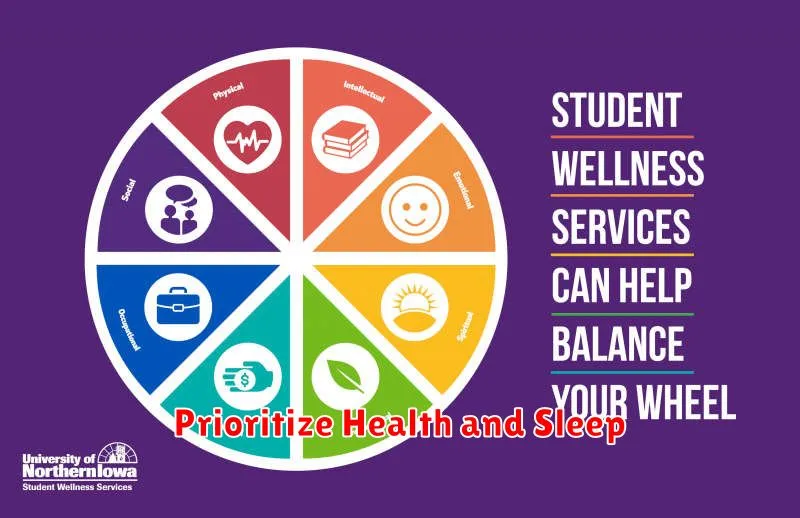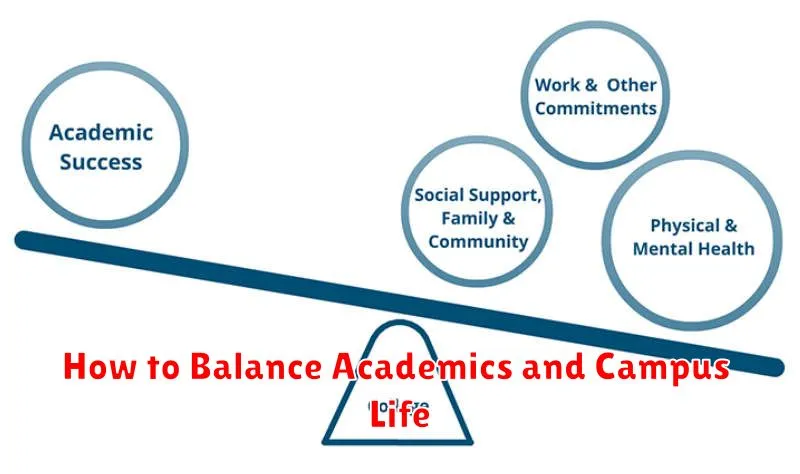Successfully navigating the challenges of higher education requires more than just academic excellence. It demands a delicate balance between academics and campus life. This article will delve into practical strategies and actionable advice on how to effectively balance academics and the multifaceted aspects of campus life, ensuring a fulfilling and successful college experience. Mastering this equilibrium is crucial for optimizing both academic performance and personal growth.
Juggling demanding coursework, extracurricular activities, social engagements, and personal well-being can feel overwhelming. However, striking a harmonious balance between academics and campus life is not only achievable but essential. By implementing effective time management techniques, prioritizing commitments, and cultivating healthy habits, students can thrive both inside and outside the classroom. This guide provides valuable insights into how to effectively manage academics alongside the vibrant tapestry of campus life.
Create a Weekly Schedule
A well-structured weekly schedule is essential for balancing academics and campus life. It provides a visual overview of your commitments, allowing you to allocate time effectively.
Begin by blocking out time for classes, labs, and other academic obligations. Then, schedule time for studying. Be realistic about how much time you need for each subject.
Next, incorporate extracurricular activities, social events, and personal appointments. Don’t overschedule yourself. Leave room for flexibility and downtime.
Finally, dedicate specific time slots for essential personal tasks such as laundry, grocery shopping, and exercise. This ensures these tasks don’t get neglected.
Join Clubs Strategically

Joining clubs and organizations is a fantastic way to enhance your campus experience, but it’s crucial to approach it strategically to maintain a healthy balance with your academics.
Prioritize quality over quantity. Don’t overcommit yourself. Start with one or two clubs that genuinely interest you. You can always join more later if you find you have the time and energy.
Consider your academic workload. Be realistic about the time commitment each club requires. If you have a heavy course load, choose clubs that offer flexibility in terms of meeting times and event participation.
Look for clubs that align with your interests and goals. Joining clubs related to your major or career aspirations can provide valuable networking opportunities and enhance your resume.
Use Campus Study Resources
Maximize your academic success by utilizing the wealth of study resources available on campus. Colleges and universities offer a range of support services designed to help students thrive academically.
Libraries provide more than just books. Explore quiet study areas, computer labs, research databases, and helpful librarians who can assist with research projects. Tutoring centers offer personalized assistance in challenging subjects. Don’t hesitate to seek out a tutor for extra help understanding concepts or preparing for exams.
Writing centers can help improve your writing skills, providing feedback on essays, research papers, and other writing assignments. Academic advisors offer guidance on course selection, major requirements, and academic planning. Meeting with your advisor regularly can help you stay on track and achieve your academic goals.
Prioritize Health and Sleep

Amidst the whirlwind of academic demands and the vibrant social scene of campus life, prioritizing your health and sleep is paramount. Sufficient sleep is crucial for academic success, as it directly impacts cognitive functions such as memory, concentration, and critical thinking.
Aim for 7-9 hours of quality sleep each night. Establish a regular sleep schedule, even on weekends, to regulate your body’s natural sleep-wake cycle. Create a conducive sleep environment by minimizing noise and light in your room. Avoid caffeine and alcohol before bed, as they can disrupt sleep patterns.
Nutrition also plays a vital role. Maintain a balanced diet rich in fruits, vegetables, and whole grains to fuel your body and mind. Stay hydrated by drinking plenty of water throughout the day. Regular exercise is essential for both physical and mental well-being. Incorporate physical activity into your routine, whether it’s hitting the gym, joining a sports club, or simply taking brisk walks around campus.
Reflect and Adjust Your Goals
Regular reflection is crucial for maintaining balance between academics and campus life. Take time, perhaps weekly or monthly, to assess your progress toward your academic goals. Are you staying on track with your coursework? Are you satisfied with your grades? Consider, too, your involvement in campus activities. Are you overcommitted? Are you getting enough enjoyment out of your extracurricular pursuits?
Based on your reflections, be prepared to adjust your goals. If you find yourself consistently overwhelmed, it might be necessary to scale back on extracurricular commitments or adjust your academic expectations. Conversely, if you’re excelling academically and have free time, you could consider taking on a new challenge or exploring a different campus activity. This dynamic approach to goal setting allows you to adapt to the changing demands of college life and maintain a healthy balance.

